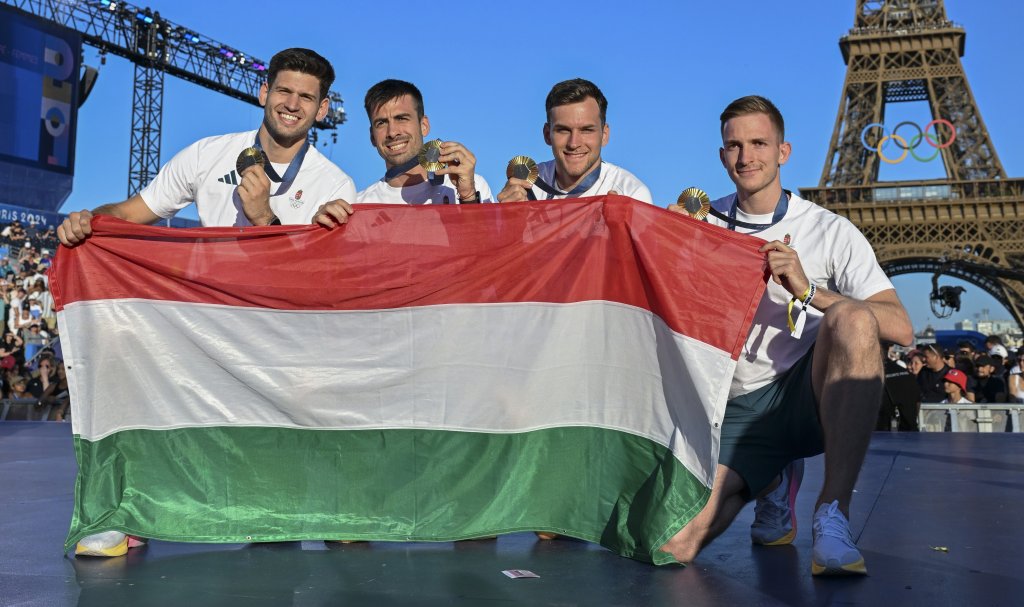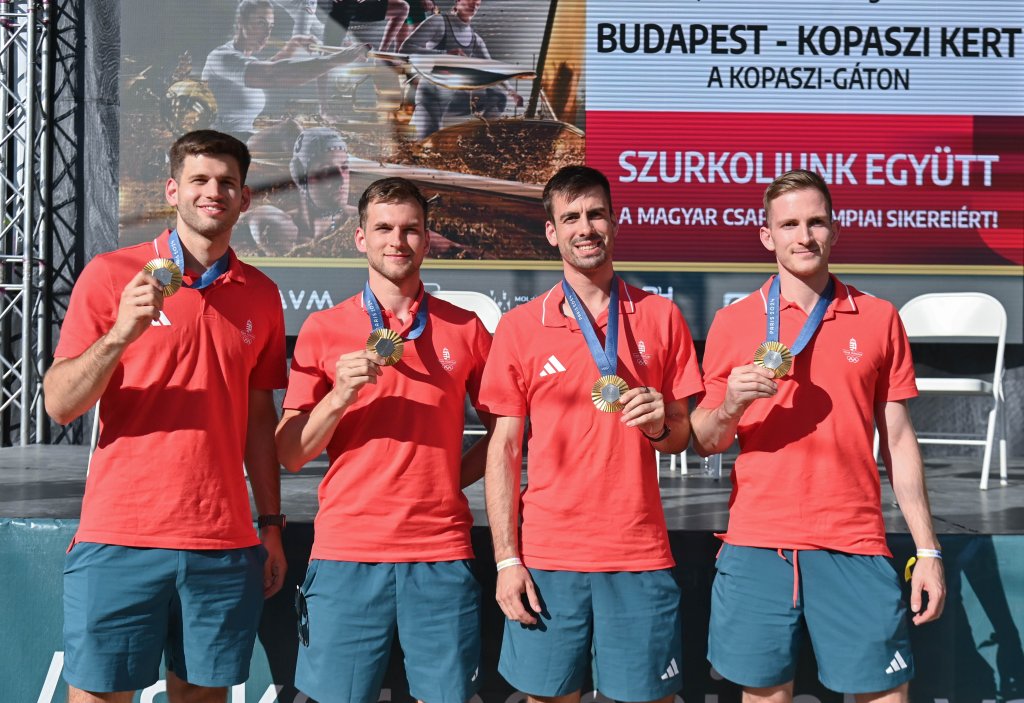Change language:
Interview with Hungarian university student who won the Olympics in Paris
Last weekend, Dávid Nagy, a student of the Faculty of Economics and Management, won gold in Paris as a member of the épée team, becoming the 20th Olympic champion of BME. The editor of the university’s official website spoke to him after he returned home.
Before the Olympics, how much chance did you see of winning the team gold?
The last period was not so rich in success. After our Olympic qualification was secure, the results didn’t come as much as before, but I think it was mainly because the previous period was very tough and the focus was a bit off the team, we were more focused on the individual performance. So that was a little bit worrying for the team, but the international rivals are so close to each other in terms of quality, the outcome of a bout depends so much on the form of the moment, that everything was possible from 1st to 8th place. The preparation went well, the timing of the form did too, we kind of starved starved ourselves for this success. I hadn’t calculated the odds beforehand, I don’t think the others had either, but we had a good feeling about it, we were relaxed during the days before the tournament, bme.hu wrote.
In the final against Japan, you were the one to increase the lead to the biggest, five points, but eventually it was as close as it coud be. Did it occur to you at 14:9 that this margin might break your opponent, just as the French couldn’t stand up to you in the semi-final?
Unfortunately, in an Olympic championship final, there is no such thing as a big enough advantage. The Japanese were very tough opponents, we always had close, tactical matches with them, every single hit was important. So at that time, we were so far away from the end that we couldn’t slow down or think about the end. We were just thinking about adding one more point. We know them so well, it was likely that they would strike back. We had so many similar matches with them.

What was going through your mind when you came in?
It was particularly difficult because I hadn’t fenced at the Olympics before, so I practically became an Olympian right in the middle of the final. I was doing well in the warm-up, but it’s quite different to do it live, and I hadn’t done that for a long time. Even though I felt that I might be good, there was still a feeling of uncertainty, because I didn’t have the chance to get into the rhythm. And only a half-minute acclimatisation could have lost the gold medal.
There are other athletes from BME at the Olympics, kayaker Ádám Varga is also a medal contender. Did you meet him in the Olympic village?
No, we just missed each other, the kayakers have only just arrived in Paris.
How was the arrival back home?
As medallists we got a few more days out, there was a ceremony at the Park of Champions, otherwise quite a long programme in the heat, and we got our turn at the very end, around 8pm. But the people were waiting for us, and as I saw a lot of Hungarian flags at the final, there were a lot of Hungarians there too. Back home, from the airport we went straight to the Kopaszi dam for a reception. The fans listened to us recalling the experience, they came to ask for photos and signatures. It was nice to feel that so many people appreciate what we’ve achieved, that this really is a national cause.

How do you balance your studies with sport?
For a long time I felt I was doing well, I had the balance, but during the qualification period it was quite difficult, so last year my studies have taken a back seat. I didn’t postpone a semester, but I went from state funding to having to pay my tuition fee. During this period fencing required almost full focus. I still have three semesters left, including professional practice, which I will try to complete with more effort.
You should obviously continue fencing, as there could be at least one more Olympics in your career. Do you have any plans for further on, hopefully with a BME degree in your pocket?
For now I’m concentrating on fencing, I don’t foresee the post-graduation period yet. All I know is that I would love to try my hand in the business world.
Read also:








Hungary should welcome all its athletes with a banquet. Articles were written how bad the food was in the Olympic village. The government should honor the athletes with good food.
By-the-way, congratulations to the Hungarian team, they represented the country well and successfully.